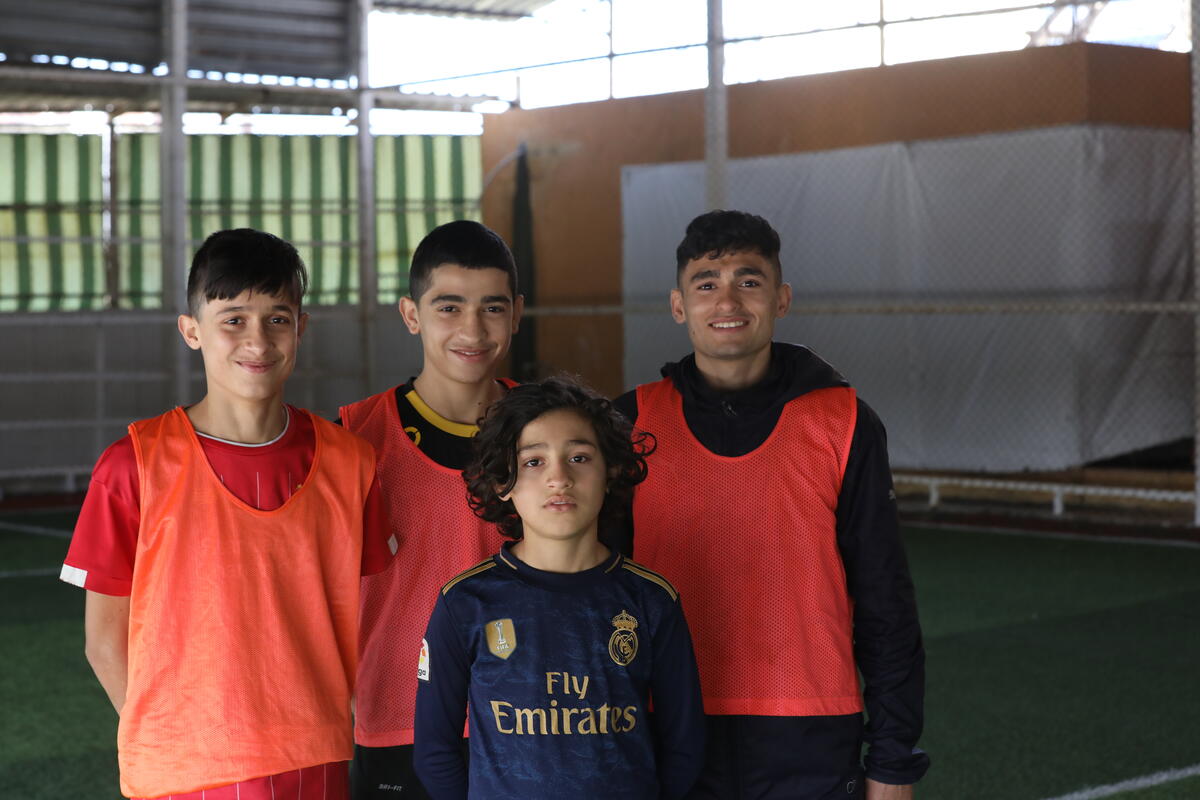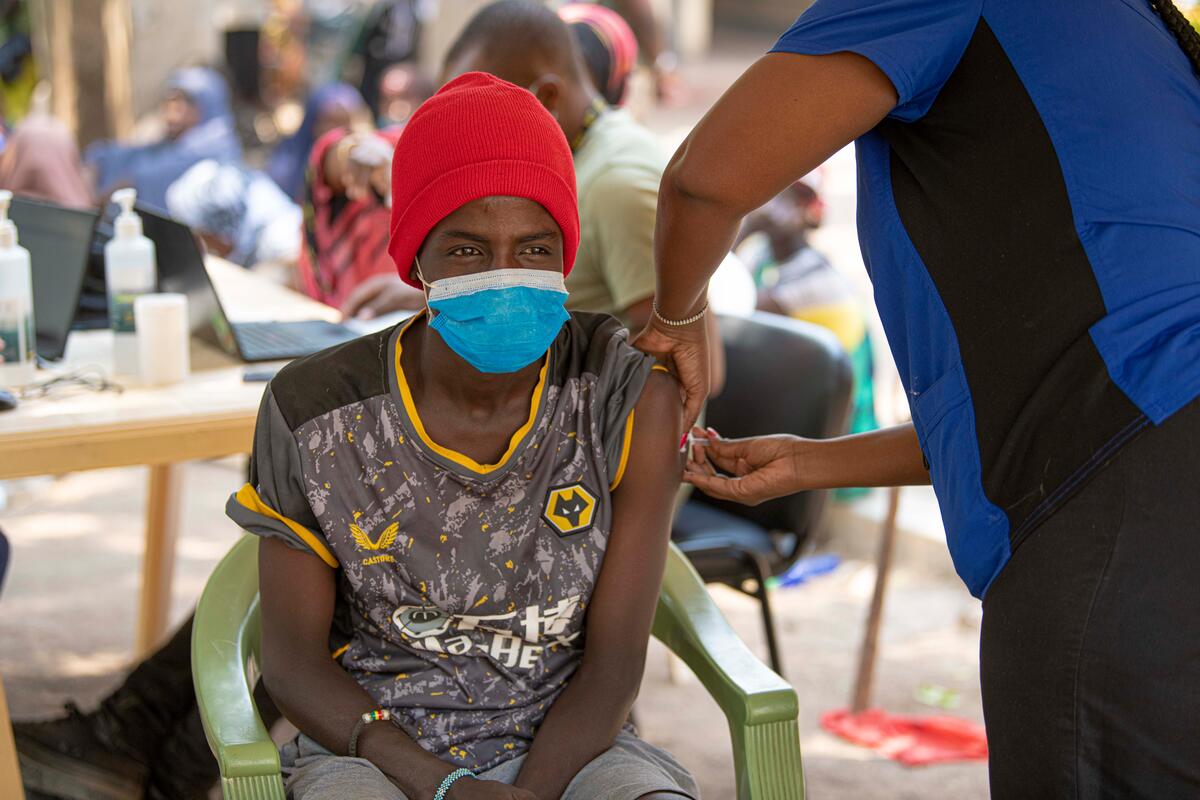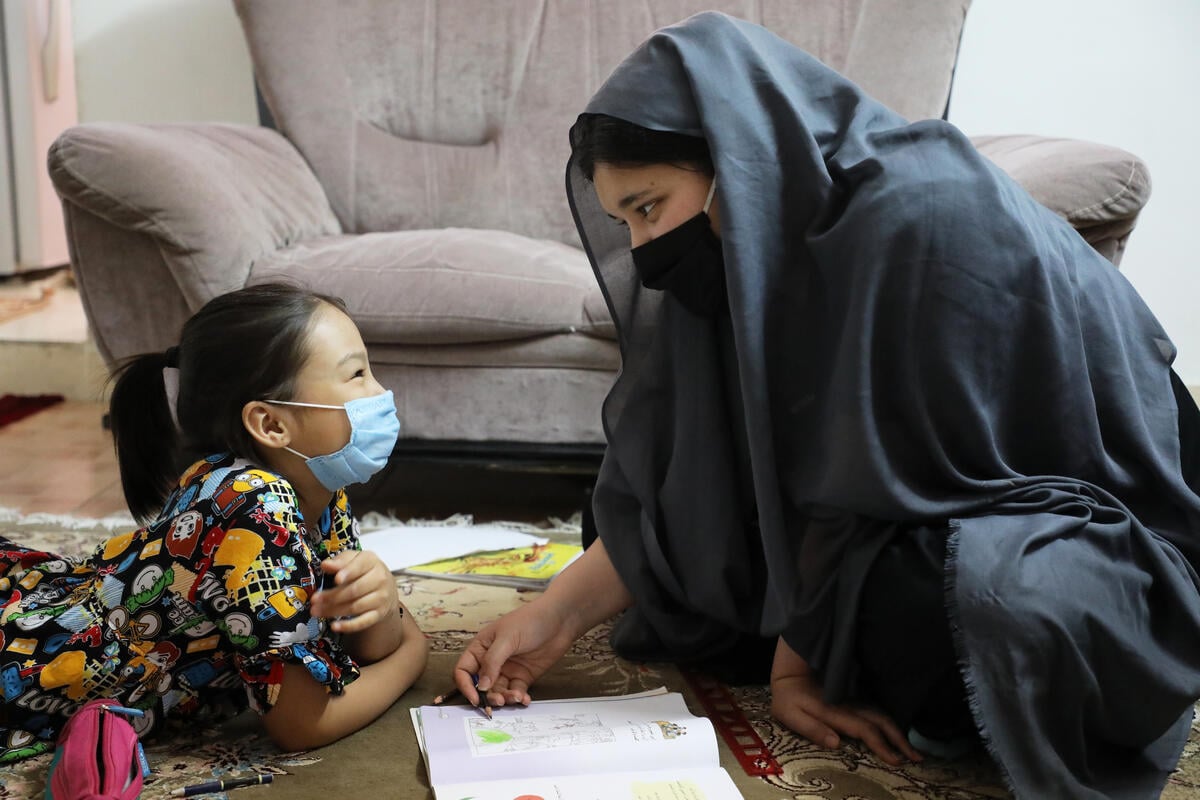Chad: UNHCR very disturbed by block on Darfur refugee relocation
Chad: UNHCR very disturbed by block on Darfur refugee relocation
We are very disturbed that in eastern Chad on Tuesday our efforts to move traumatised, newly arrived refugees from West Darfur away from the volatile border to camps was blocked by the presence of unknown armed elements. They gave no reason for their actions but it was clear the relocation would not take place. This is deeply concerning and we are making every effort with the Chadian authorities to get these refugees moved quickly. The situation is so serious that our representative in Chad is now at the border trying to find a solution to this problem which is leaving the refugees extremely exposed and vulnerable. The area is highly insecure with roaming armed groups posing a real threat to the refugees and aid workers.
The joint UNHCR-led humanitarian mission on Tuesday, which had located scattered groups of refugees in Birak area in very poor condition on Sunday, found 179 refugee families, as agreed, ready to be picked up in Figuera, 90 km south-east of Guéréda. The plan was to start moving the first group to Kounoungou camp in Guéréda but the refugees were prevented from boarding the trucks by armed men. We arranged with the refugees, 70 percent of them women and children, to return within a few days with urgently needed relief supplies. The team moved on to another location to collect refugees but found they had moved away, scared by rumours of imminent janjaweed attacks.
The newly arrived refugees are exhausted. Women report being raped. Children have been separated from their families. Many of the new arrivals around Birak were already internally displaced in West Darfur and had been living in IDP camps. Our office in West Darfur is reporting that many IDP families who did not flee to Chad, are reporting missing children in the area of Sirba. We will work with the ICRC try to reunite them with their families.
Yesterday, Thursday another team went to Koruk area where several thousand refugees are scattered. The team found some refugees who had managed to flee with food, animals and household items, but other groups had nothing. Some families reported being attacked and robbed by Janjaweed on their way to Chad.
There are an estimated 8,000 newly arrived refugees in the Birak and Koruk area.
We face some tough logistical challenges in getting the refugees quickly away from the border and are planning in the meantime to concentrate the new arrivals in two to three locations to make giving immediate assistance easier. MSF-Suisse, ICRC as well as UNHCR and its partners will be present. Basic items like sleeping mats, blankets, jerry cans and soap will be distributed, tents set up to provide basic shelter and food (WFP) provided this weekend. Water is available nearby.
Before this latest influx of refugees, UNHCR and its partners were caring for 240,000 refugees from Darfur in 12 camps in the arid eastern region of Chad.
Tuesday's humanitarian mission to the east included UNHCR, the government body for refugees CNAR, IMC, SECADEV and GTZ.
Cameroon - we are preparing to start the first transfer on Saturday of Chadian refugees from the capital N'Djamena who fled from recent fighting across the bridge over the River Chari to Kousséri in neighbouring Cameroon. The refugees will be moved from the Madana transit centre in Kousséri, 500 metres from the bridge, where some 7,000-10,000 refugees are living in the open, to a better equipped site at Maltam 32 km west from Kousséri. An estimated 30,000 people fled from N'Djamena with many finding shelter in schools and churches in Kousséri.
We hope to transfer 1,000 refugees a day of those who want to be relocated. Some refugees told our team in Kousséri that they still don't feel safe returning to their homes in N'Djamena. The Maltam site can host up to 50,000 people. UNHCR and its partners have started to build latrines, health centres and schools on the site, and we have put up tents for shelter.
Water will first be trucked from Kousséri to Maltam until the two boreholes we are building are functioning. We have been working closely with the Cameroon authorities and traditional refugee leaders on the transfer of the refugees.









